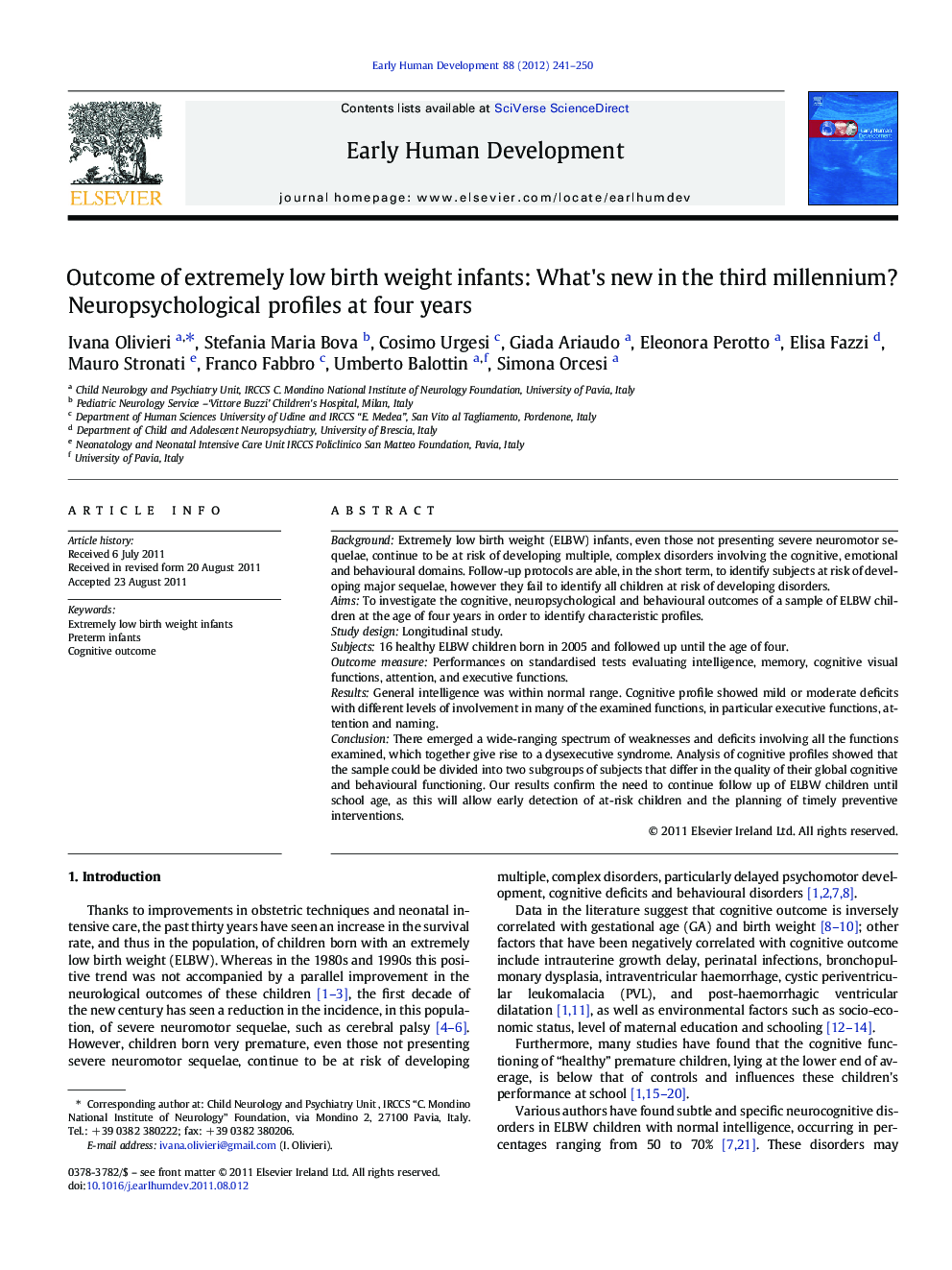| Article ID | Journal | Published Year | Pages | File Type |
|---|---|---|---|---|
| 3918390 | Early Human Development | 2012 | 10 Pages |
BackgroundExtremely low birth weight (ELBW) infants, even those not presenting severe neuromotor sequelae, continue to be at risk of developing multiple, complex disorders involving the cognitive, emotional and behavioural domains. Follow-up protocols are able, in the short term, to identify subjects at risk of developing major sequelae, however they fail to identify all children at risk of developing disorders.AimsTo investigate the cognitive, neuropsychological and behavioural outcomes of a sample of ELBW children at the age of four years in order to identify characteristic profiles.Study designLongitudinal study.Subjects16 healthy ELBW children born in 2005 and followed up until the age of four.Outcome measurePerformances on standardised tests evaluating intelligence, memory, cognitive visual functions, attention, and executive functions.ResultsGeneral intelligence was within normal range. Cognitive profile showed mild or moderate deficits with different levels of involvement in many of the examined functions, in particular executive functions, attention and naming.ConclusionThere emerged a wide-ranging spectrum of weaknesses and deficits involving all the functions examined, which together give rise to a dysexecutive syndrome. Analysis of cognitive profiles showed that the sample could be divided into two subgroups of subjects that differ in the quality of their global cognitive and behavioural functioning. Our results confirm the need to continue follow up of ELBW children until school age, as this will allow early detection of at-risk children and the planning of timely preventive interventions.
